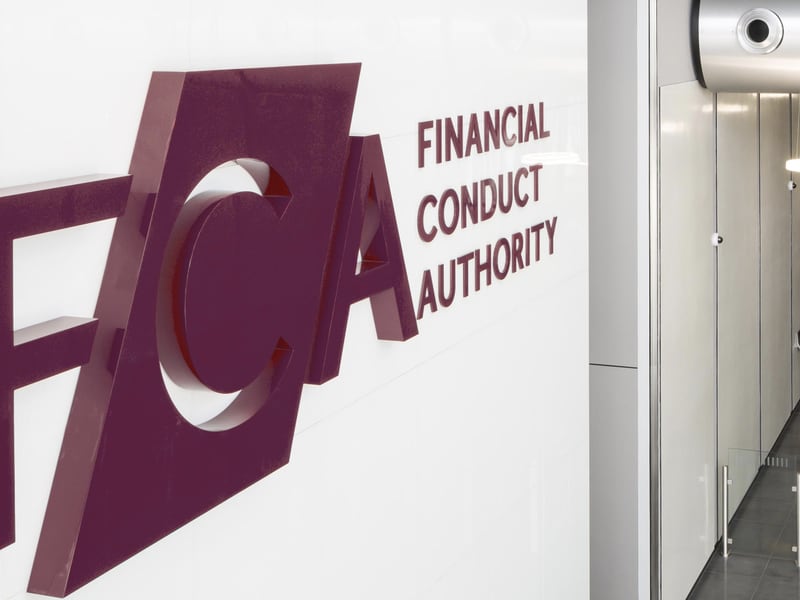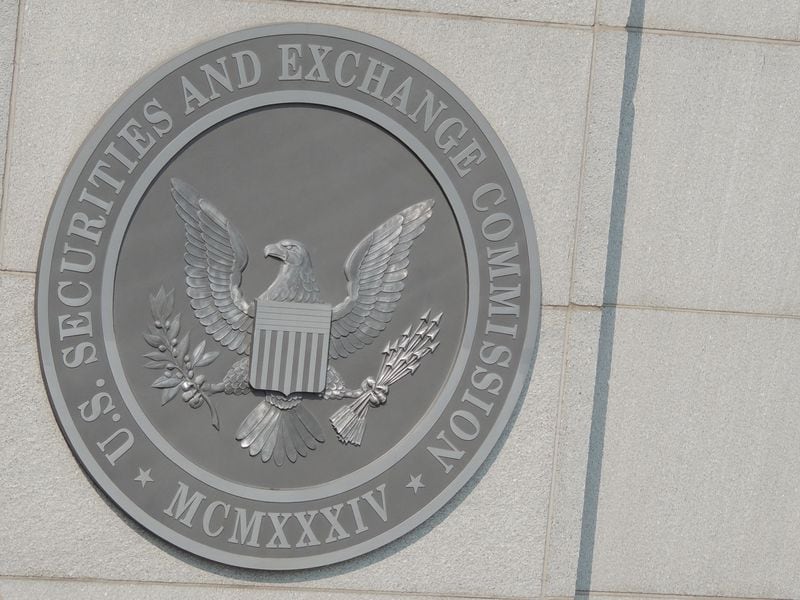Don’t Pop the Champagne on U.S. Crypto Bills – Progress in Congress Has Been Costly
-
Getting past the House committee stage marks a major win for crypto legislation, but if the overall House approves them, the bills face a potentially hostile Senate and White House.
-
Even if the debate stretches into another year, crypto lobbyists are cheering several Democrat lawmakers’ willingness to stand against their party to reject the status quo.
The crypto industry has never made it this far in its quest for a new system of U.S. oversight for digital assets, but the recent flurry of legislative progress may still be too contentious for it to become law.
Three major fronts have emerged in digital assets legislation. One effort would finally set up wide-ranging rules for the industry, another would address stablecoins and a third would tackle the dangers of money laundering in crypto. They all saw a surge forward last week, but each of them also faces a minefield that may be insurmountable in the short term.
The industry is desperate for U.S. regulations that allow it to cast off investor uncertainties and take its place as a mature, fully functioning part of the economy. To get that – instead of the accelerating legal fight it’s waging with regulators – crypto needs new laws that define how it should work and which agencies should be doing what.
The drive toward a comprehensive law that governs how crypto will operate in the U.S. saw one leading proposal clear two committees in the House of Representatives last week. The legislation – which would set up the Commodity Futures Trading Commission with more direct crypto authorities – has been led by Republicans but saw a surprising cadre of Democratic supporters bucking their leadership to get on board. Still, it’s unlikely to get signoff as-is from Senate Democrats and the White House.
“I think market structure, realistically, it’s going to probably be a two-year thing,” said Ron Hammond, director of government relations for the Blockchain Association in Washington. But he said crypto proponents are “really pleasantly surprised” by how the Republican-driven initiative cleared the two committees. “The market structure bill won a variety of Democrats on a variety of fronts.”
Despite bipartisan legislation in the Senate from Sens. Cynthia Lummis (R-Wyo.) and Kirsten Gillibrand (D-N.Y.) that generally overlaps a lot of the proposals in the House bill, the Senate Banking Committee has been a black box this year on its regulatory intentions for crypto. That panel’s chairman, Sen. Sherrod Brown (D-Ohio), has been starkly critical of the digital assets sector and shown little enthusiasm for weighing in.
Even if legislation clears that committee, it needs to advance through a divided Senate in which both parties typically need to be on board for anything to happen.
The day after the House Financial Services Committee endorsed that first standalone crypto-regulation bill to clear a committee, it was back in session to consider the narrower bill that targets stablecoin oversight. The Committee – all of its Republicans and a handful of Democrats – voted to forward that legislation, too. Such a bill has often been seen as having the best chance to survive the congressional gauntlet, because both sides agree on most of the main points and they’d worked together on it from its early days last year. But negotiations on this version – a complex system of licensing and government supervision in which both states and federal agencies would play roles – broke down in the hours before its vote.
People familiar with the talks said that at the last moment, the White House’s National Economic Council, led by Lael Brainard, dumped cold water on it, saying it didn’t put federal regulators in a strong enough role – a position echoed by officials from the Treasury Department and at the Federal Reserve, the regulator that Democrats have argued should be the final voice in supervising stablecoins and licensing their issuers. So stablecoins are the latest battleground in the ancient fed-versus-states congressional clash.
Rep. Patrick McHenry (R-N.C.), chair of the House committee voting on the bill, railed against this 11th-hour interference that robbed the effort of most of its potential Democratic support. However, the public markup hearing – as contentious as it was – ended with several Democrats again defying the opposition of ranking Democrat Rep. Maxine Waters (D-Calif.) and voting yes to send it to the floor.
“If the House manages to pass the bill, it’s unclear whether the Senate will,” said Charleyne Biondi, an analyst at Moody’s. “The debates are likely to drag on, and we are not very optimistic about the fact that the proposal would advance at this stage.”
In Schoolhouse Rock simplicity, U.S. bills get introduced, get bashed about in committees, get sent to the floor where they get overhauled some more and finally get a floor vote. Then both chambers – the House and Senate – need to agree on a final version the president can sign (or not). In that process, these bills are now about a third of the way through – heading toward the floor of the House.
Money laundering amendment
The last of the trio of legislative fronts may be the most likely to end up a reality, but it’s further down the list of the crypto industry’s Washington priorities. Several senators from both parties have been seeking to bounce money launderers from crypto, and some of them are insisting that industry firms keep tabs on their customers’ identities. Last week, some lawmakers managed to attach an amendment to a defense spending bill that would check off several of their aims.
The amendment – in the Senate’s version of the spending bill – was authored by a diverse crew: Sens. Lummis and Gillibrand, who have pushed their own comprehensive crypto legislation, plus Sen. Roger Marshall (R-Kansas) and Sen. Elizabeth Warren (D-Mass.), one of the industry’s most enthusiastic critics. It calls for the Secretary of the Treasury to “establish examination standards for crypto assets” to help examiners work out how businesses are meeting sanctions demands and guarding against money laundering. It also required the Treasury to study anonymity in crypto transactions, including the use of so-called mixers.
“We believe this measure is the most likely to pass in this Congress,” Jaret Seiberg, an analyst at Cowen Group, wrote in a research note. He contended that this limited amendment could lay “the framework for other crypto bills by tackling upfront concerns over money laundering and sanctions evasion.”
To get to the president’s desk this year, lawmakers from both chambers will have to let it slide through in the combined defense package that melds the versions from the House and the Senate. It’s uncertain whether this provision will make the cut during those negotiations, but Seiberg argued it has a good chance.
Warren has a bigger goal and has been trying to build support for her own wider bill that would insist on Bank Secrecy Act money-laundering controls on crypto entities, including miners, validators and digital wallets. The bill is also backed by Sen. Marshall and other key names that Warren wouldn’t often be seen paired with: Sens. Joe Manchin (D-W.V.) and Lindsey Graham (R-S.C.). Their legislation is seeking to ban financial firms from dealing with services that allow for anonymous crypto transactions – forcing a “know your customer” regime that is familiar to traditional finance.
For now, she may just have to take the partial win of the amendment, Seiberg suggested, which could eventually produce a Treasury report that gives her bigger bill more momentum.
And while Warren waits, she’s been joined by unusual bedfellows as Wall Street bankers – ever interested in countering crypto competition from the unregulated fringes of finance – lend their support. Despite the history of animosity between Wall Street and Warren, that industry’s lobbying group, the Bank Policy Institute, praised the bill as an attempt “to defend our nation’s financial system against illicit finance in all its forms.”
Another banking group, the American Bankers Association, had similarly weighed in on the stablecoin debate, sending a letter to McHenry and Waters at the House Financial Services Committee asking the lawmakers to apply the same federal oversight to stablecoin issuers as the government does to state-chartered banks. In a quick response, Chair McHenry called the letter “disappointing” and said it mischaracterized what the stablecoin bill was doing and ignored the things they’d already done to benefit banks.
When it comes to crypto issues, bank lobbyists’ usual friendliness with Republicans has sometimes been turned on its head. While crypto lobbyists have liked to say digital assets are nonpartisan, Republicans have generally stepped forward as the industry’s most reliable allies, but a lot of murkiness remains. And the fact that Democrats broke ranks to push the latest legislation forward isn’t going unnoticed. Democratic Reps. Jim Himes (D-Conn.), Josh Gottheimer (D-N.J.), Ritchie Torres (D-N.Y.), Steven Horsford (D-Nev.), Wiley Nickel (D-N.C.) and Brittany Pettersen (D-Colo.) took a stand against their own party on the wide market-structure bill, and that may be the best outcome pro-crypto forces could have hoped for. The lawmakers’ votes indicate they disagree with Securities and Exchange Commission Chair Gary Gensler that existing law is sufficient for policing crypto. They don’t think the status quo is working.
Even if the push on all this crypto legislation fails again this year, it hasn’t necessarily been a waste of time.
“Congress is designed to be a deliberative body, which can make legislating a long and difficult process,” said Brett Quick, head of government affairs at the Crypto Council for Innovation. “It is important to remember that even in the absence of the president’s signature, these proposals will serve as the foundation for ongoing considerations around regulating crypto in the United States.”
The extra complicating factor at the moment is that every day that goes by pushes Washington closer to the quadrennial presidential cage match that often leaves the capital in its most politically caustic and legislatively inefficient state. And Congress is now heading into its summer break, which moves the lawmakers several weeks closer to the 2024 election year.
One of the candidates for president is Sen. Tim Scott (R-S.C.), the senior Republican in the Senate Banking Committee, who would customarily be in a significant position to play a role in financial legislation. But pushing a crypto bill may not be politically astute for somebody courting mainstream voters, especially if it comes with a loud, partisan fight.
Still, Republican lawmakers on the financial services committee are reaching out to see if something can be done to find common ground with the Democrats and administration on the stablecoin legislation. People familiar with the process said that hope hasn’t been extinguished on the effort this year, despite the hard feelings exhibited in last week’s hearing.
“I wouldn’t call the stablecoin bill dead,” said Blockchain Association’s Hammond.
Nikhilesh De contributed reporting.
Edited by Nikhilesh De.








